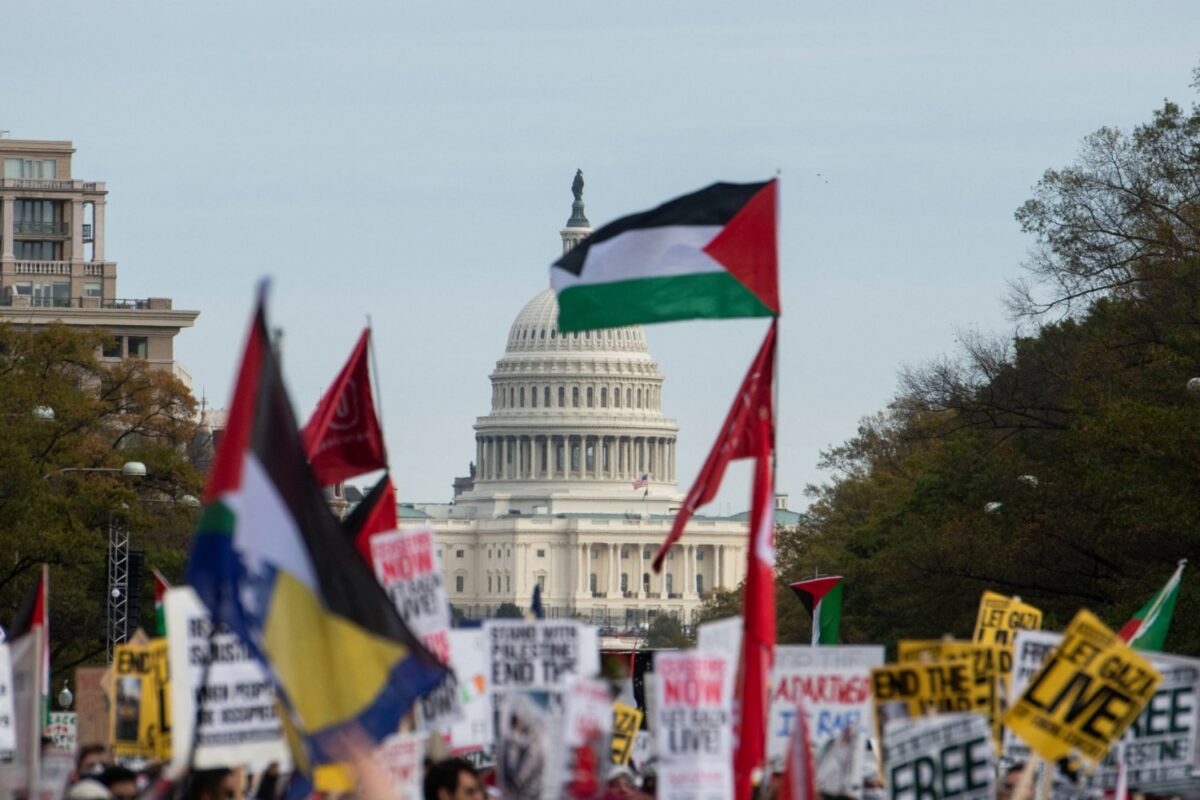The Prime Minister of Israel Benjamin Netanyahu has revealed Israel’s post-Gaza war plan.
In the wake of the recent conflict in Gaza, Israeli Prime Minister Benjamin Netanyahu has presented an extensive “day after” plan, offering a glimpse into Israel’s vision for the future of the embattled territory and the broader Israeli-Palestinian relationship. The unveiling of this blueprint marks a significant development in the ongoing efforts to address the complex and deeply entrenched issues that have fueled decades of conflict in the region.
The post-Gaza war plan, shared with members of Israel’s security cabinet, outlines Netanyahu’s strategic objectives for Gaza and beyond. At its core is Israel’s steadfast commitment to maintaining security control over all territories west of the Jordan River, including the occupied West Bank and Gaza. This assertion underscores Israel’s fundamental security concerns and its longstanding rejection of unilateral measures aimed at establishing a Palestinian state without direct negotiations.
In articulating his long-term goals, Netanyahu categorically rejects the notion of unilateral recognition of a Palestinian state, emphasizing instead the necessity of bilateral negotiations between Israel and the Palestinians. However, the document notably refrains from specifying the Palestinian party with whom such negotiations would take place, leaving room for speculation and further diplomatic maneuvering.
With regard to Gaza, Netanyahu’s post-Gaza war plan delineates demilitarization and deradicalization as pivotal objectives to be pursued in the medium term. While the exact timeline and implementation strategies for these goals remain unspecified, Netanyahu unequivocally links the reconstruction and rehabilitation of Gaza to its complete demilitarization. This precondition underscores Israel’s imperative to safeguard its security interests while facilitating the region’s recovery and stability.
To address security concerns along the Gaza-Egypt border, Netanyahu proposes a collaborative approach involving Israel, Egypt, and the United States. This framework aims to enhance border security and curb illicit smuggling activities, particularly at the Rafah crossing, thereby bolstering regional stability and curtailing threats posed by militant groups operating in the area.
Furthermore, Netanyahu advocates for a transition away from Hamas rule in Gaza towards a civilian-led administration. Central to this vision is the cultivation of partnerships with local representatives untethered to terrorist affiliations, alongside the phased closure of the United Nations Relief and Works Agency for Palestine Refugees (UNRWA). Netanyahu contends that replacing UNRWA with alternative international aid organizations would streamline humanitarian assistance delivery and mitigate the agency’s perceived politicization.
The unveiling of Netanyahu’s post-Gaza war plan has elicited mixed reactions both domestically and internationally. Proponents view it as a pragmatic and forward-thinking approach to addressing the underlying issues fueling the conflict, while critics argue that it fails to adequately address Palestinian aspirations for statehood and self-determination.
The Palestinian leadership, represented by President Mahmoud Abbas’ spokesperson, Nabil Abu Rudeineh, has dismissed Netanyahu’s post-Gaza war plan as inherently flawed and incompatible with the principles of international law. Abu Rudeineh contends that any resolution to the Israeli-Palestinian conflict must be predicated on the recognition of Palestinian statehood and the cessation of Israeli occupation.
In the broader context of regional geopolitics, Netanyahu’s plan intersects with ongoing debates surrounding the viability of the two-state solution. While the international community continues to advocate for a negotiated settlement based on the establishment of two states living side by side in peace and security, internal divisions within Israel and Palestine pose significant obstacles to its realization.
As Israel navigates the complexities of post-war reconstruction and diplomatic engagement, the path towards sustainable peace remains fraught with challenges and uncertainties. Netanyahu’s post-Gaza war plan represents a significant albeit controversial contribution to the discourse surrounding the Israeli-Palestinian conflict, yet its success hinges on political will, international support, and constructive engagement with everyone.
